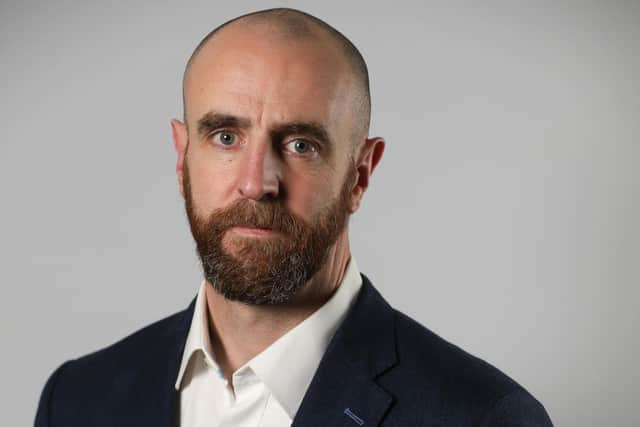Additional £7.1m for direct payments ‘not enough’ says Derry MLA
and live on Freeview channel 276
The funding for direct payments is in addition to previous support packages announced by the Health Minister to help alleviate pressures on the wider social care sector.
Minister Swann said: “Social care services continue to face significant pressures and will continue to do so if things do not change. I have been clear on the need for a longer-term solution, which includes multi-year budgets and sustained funding. Working on short term budgets, is not an efficient or effective way to build for the future. The £7.1m I have announced today is aimed at providing specific support for care provided through direct payments and follows previous support packages for staff in the domiciliary care and care home workforces.
“Direct Payments are one option available under Self-Directed Support (SDS); an important component of social care that offers service users choice and control over how services are delivered. This additional funding will allow disabled people more flexibility to employ individuals to best meet their specific needs ensuring a more personalised delivery of care. Personal assistants employed through Self-Directed Support play a vital role in enhancing the quality of life for the disabled person they are employed by and I am pleased to be able to recognise the value they bring to both individuals, and the wider Health and Social care system, by this £7.1m uplift.”


Direct Payments are available when someone has been assessed as needing help from social services and would like to arrange and pay for their own care and support services instead of receiving them directly from their local health trust.
The Health Minister added: “While I have no doubt all additional funding is very welcome, I have to again put on record the unsustainable nature of the budgetary situation my Department is facing. The £7.1m I am announcing today is one of the many components of the significant and unprecedented overspend projected for the current financial year.”
Advertisement
Hide AdAdvertisement
Hide AdSDLP MLA Mark H Durkan said an increase in the rates of Self-Directed Support (SDS) rates for individuals in need of care is an improvement but does not go far enough.
He said: “An uplift in Self-Directed Support (SDS) rates for carers is welcome news and is a provision which I have been pushing for ever since the increase in the rate of domiciliary care was announced in March of this year.
“The increase of the domiciliary care rate to £18 per hour was long-overdue however the failure to implement a rise for service users who receive direct payments at a rate of £13.18 per hour, created a huge anomaly within social care services. People in need of care were left with no option but to go down the direct care route given the difficulty in securing home care packages. The reality is that demand is spiralling and health trusts across the North are signposting individuals and their families to direct payments. These people were disadvantaged straight away; if they chose to pay their carers an increase rate to match that of their counterparts in agencies then they were left out of pocket, forced to pay shortfall or reduce the number of hours of care they needed. As such this uplift will help people in need of care.
“Yet the reality remains that carers are still not paid anywhere near enough despite the invaluable role they play within society. The crisis in social care has persisted for over a decade, it has escalated particularly within the last few years. Over the last year alone, the number of individuals waiting for care packages in Northern Ireland has increased by 60%. It’s evident there aren’t enough carers to meet demand. Yet there are a number of factors at play here; funding, the fact demand outstrips supply and capacity issues.
Advertisement
Hide AdAdvertisement
Hide Ad"Of course, more investment is needed in short term- however, increased funding is nothing without transformation as well as effective workforce planning. We need to attach more value to jobs in social care and that involves improving pay as well as working conditions.
“The £7.1 million investment needs to be sustainable and retained well into the future. It is important that it is not capped given the growing need and growing ageing population. This uplift in rates is no doubt a step in the right direction but needs to go much further.”